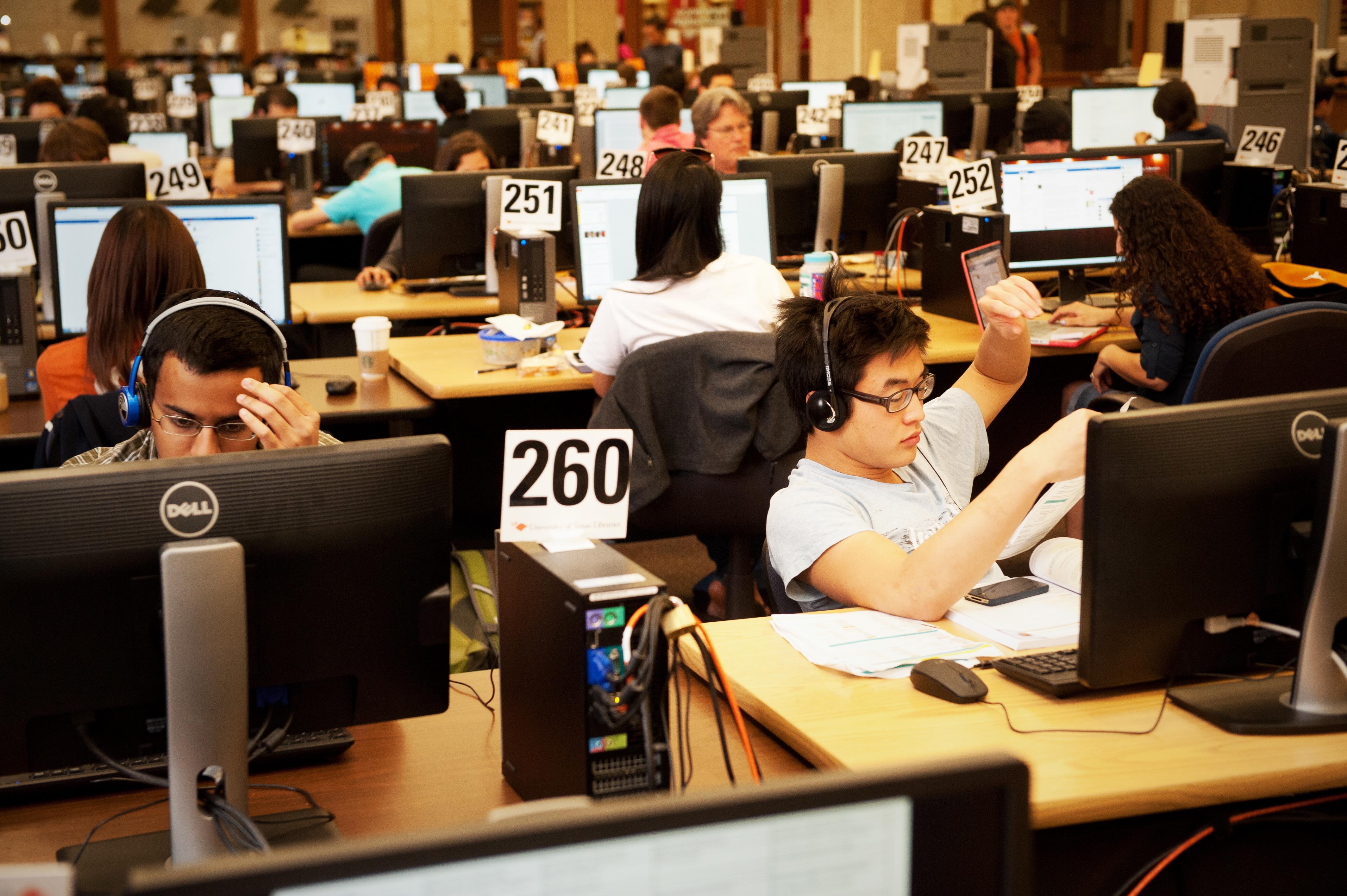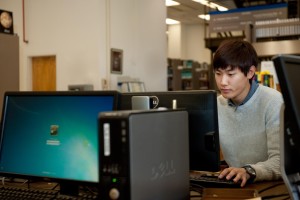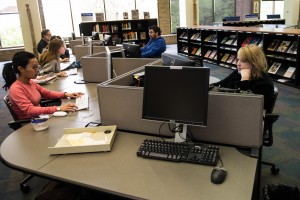
We talk much about the collections (physical and digital) and spaces at the UT Libraries, but there’s a significant technology infrastructure in place to facilitate access and digitally preserve the Libraries’ massive assemblage of electronic resources. To maintain those important tools, a highly-trained cadre of technology professionals is constantly on call to respond to issues, discover and implement technological innovations and provide for the support needs of staff.
As the Libraries have continued to explore ways to expand services to address the needs of campus, we’ve considered how we might leverage this technical expertise to provide support beyond the Libraries.
Chris Carter — the Libraries’ Director of Planning and Operations — was approached by representatives of the McCombs School of Business after they heard a description of the cost model for supporting UT Libraries labs. McCombs Director David Burns wondered if that support could be scaled to provide lab support in the Business School. Carter and his staff ran the numbers and took the proposal to Libraries administration, who roundly backed the evaluative project, and after a pilot period in Summer 2015, Libraries’ IT Infrastructure staff took over the tech support of a lab at the McCombs School.
Under the terms of service, the Business School purchases the hardware and secures licensing of specialized software, and the Libraries provides installation and support of operating systems, applications and updates for the computers; when there’s a problem with a PC, Libraries IT staff respond to address it. Fees charged per computer by the Libraries was determined to allow for the accommodation of additional IT staff should growth of the lab make it necessary.

Along with the branches, this brings the support coverage area maintained by Libraries staff to 14 locations, and Carter feels that there is room to expand to provide the service to other interested parties on campus.
“We structure the service so that it fits into our current, lean and efficient desktop support approach,” says Carter. “The cost per PC for support is intended to allow us to add an FTE if we increase the service so much that it needs an extra person. For now, we just rely on the excellent and efficient people we currently have. In particular, the excellent systems administration skills of David Roberts makes this possible.”
The College of Natural Sciences recently contributed 20 additional units to the Mallet Chemistry Library — bringing the number of computers to 32 — and provided specialized software, but, in this case, the Libraries simply took ownership of the expanded lab. The opportunities for growth in the third-party support model for campus computer labs, though, is extensive thanks to an ever-present need for technology.

Carter thinks the Libraries are well-suited to play the support role for other campus partners by virtue of what we’ve learned from internal efforts.
“We see the service from the perspective of supporting a high volume 24/7 kind of operation in PCL and extend the same service offering to anyone who wants to have a library lab in their space,” Carter says. “The McCombs lab is a 24/7 facility for business students and we’ve been able to both replicate what is available in PCL and customize it for their needs. It’s a good model of a basic, replicable service that will both scale and also allow for local customization depending on the discipline.”
